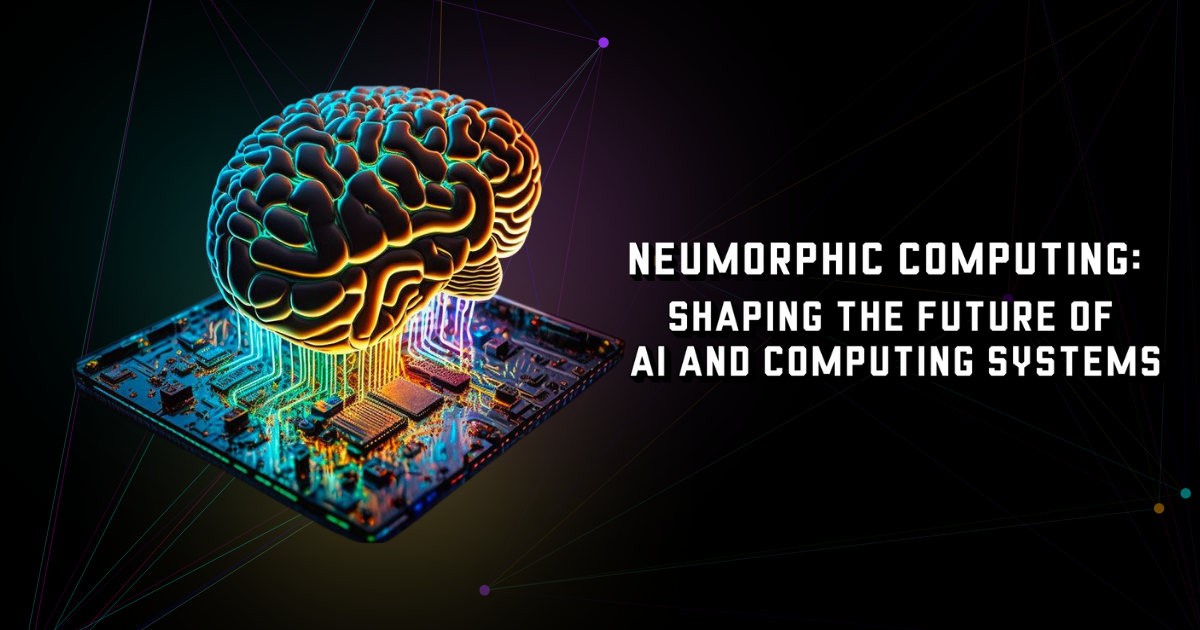
Quantum computing is revolutionizing the tech world, and quantum hardware forms its backbone. Quantum computers, unlike classical ones that use bits to process information, rely on quantum bits, or qubits, for their operations. The field is burgeoning, with significant investments from governments, private companies, and academic institutions. This article dives into the major players in the quantum hardware arena, examining their contributions, strategies, and unique technologies.
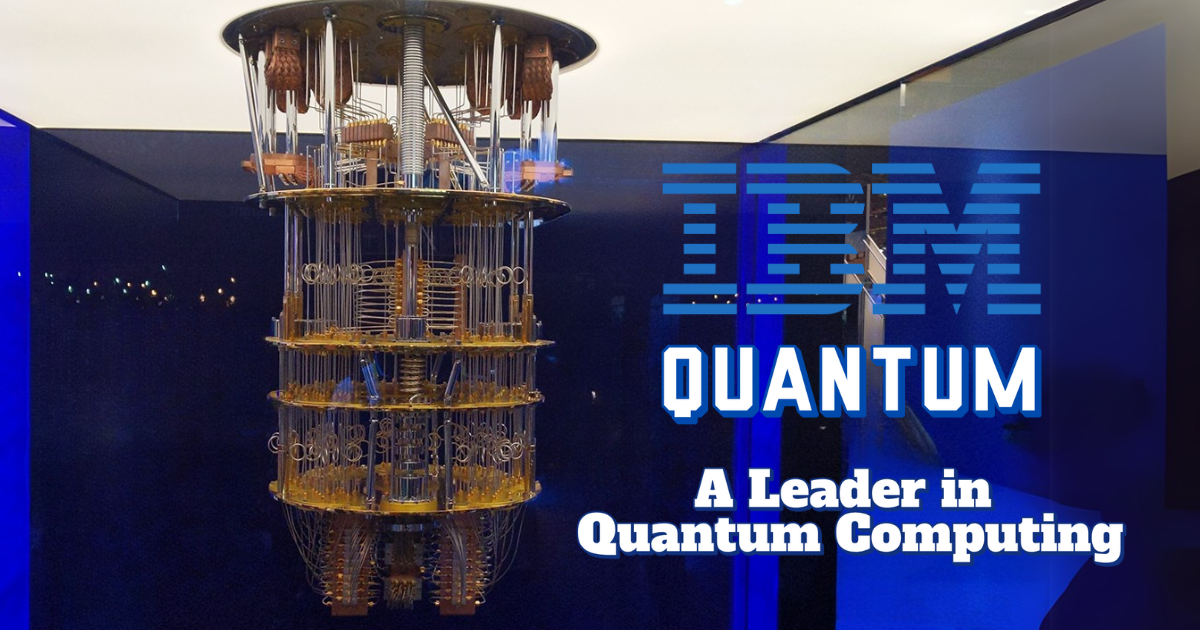
1. IBM Quantum: A Leader in Quantum Computing
IBM Quantum is at the forefront of quantum computing, spearheading innovation in both hardware and software. Since the launch of the IBM Quantum Experience in 2016, the company has been steadfast in its commitment to making quantum technology accessible to researchers, developers, and businesses. IBM’s quantum computers leverage superconducting qubits, known for their high coherence times and scalability, forming the core of its Quantum System One—an integrated system designed for stability and commercial deployment.
The company has built a robust ecosystem through the IBM Quantum Network, partnering with academic institutions, startups, and enterprises to accelerate quantum innovation. Its open-source framework, Qiskit, empowers developers to design, simulate, and execute quantum algorithms on IBM’s cloud-accessible quantum processors.
IBM’s quantum roadmap emphasizes scaling up to over 1,000 qubits and beyond, with a strong focus on error correction and fault-tolerant systems. Milestones such as the 127-qubit Eagle processor and the 433-qubit Osprey showcase IBM’s commitment to pushing technological boundaries. By integrating quantum computing into practical applications, such as optimization, chemistry, and machine learning, IBM Quantum continues to lead the charge in transforming industries and solving problems once thought impossible.
Future Plans:
IBM aims to scale its quantum processors to thousands of qubits by the 2030s, focusing on error correction and fault-tolerant quantum computing.

2. Google Quantum AI: Leading the Way in Quantum Computing
Google Quantum AI is a prominent force in quantum computing, celebrated for achieving quantum supremacy in 2019. Using the 54-qubit Sycamore Processor, Google demonstrated the ability to solve a problem in 200 seconds that would take classical supercomputers millennia, marking a significant milestone in the field.
The company focuses on superconducting qubits, which offer high-speed operations and scalability. Google’s roadmap prioritizes advancements in error correction, qubit connectivity, and coherence times, aiming to build a fault-tolerant quantum computer capable of transformative real-world applications. These efforts are supported by a team of world-class researchers and partnerships with academic institutions and industry leaders.
Google’s quantum efforts extend beyond hardware. Its Cirq open-source framework empowers developers to create, simulate, and execute quantum algorithms. Additionally, Google explores quantum applications in areas such as materials discovery, cryptography, and artificial intelligence, aiming to solve problems that classical systems cannot efficiently address.
By integrating quantum research with its AI expertise and vast computing resources, Google Quantum AI is at the forefront of bridging theoretical quantum capabilities with practical applications. Its dedication to innovation is transforming industries and ushering in the quantum era.
Future Plans:
Google’s roadmap includes scaling up the qubit count and reducing error rates, ultimately building a practical quantum computer capable of solving real-world problems.

3. Intel: Advancing Quantum Hardware with Semiconductor Expertise
Intel brings its decades of semiconductor manufacturing experience to quantum computing, focusing on creating scalable and reliable quantum hardware. Unlike many competitors using superconducting qubits, Intel explores spin qubits in silicon, leveraging its established infrastructure to produce qubits with the potential for integration into existing chip designs. Spin qubits are smaller, operate at higher temperatures, and offer better stability, making them a promising avenue for practical quantum computing.
A key innovation is Intel’s Cryo-CMOS control chips, designed to operate at cryogenic temperatures, simplifying quantum systems by integrating qubit control within the quantum chip itself. This streamline wiring complexity while boosting system performance. Intel partners with QuTech, a leading quantum research institute, to develop robust quantum hardware and algorithms tailored for future quantum applications.
Intel’s focus on using silicon-based technologies allows for potential mass production of quantum chips, setting it apart in the race for scalable quantum systems. Its roadmap emphasizes improving qubit coherence times, error correction, and building larger qubit arrays. By bridging the gap between quantum and classical computing, Intel aims to bring quantum technology closer to commercial viability, enabling breakthroughs in fields like cryptography, optimization, and material science.
Future Plans:
Intel’s goal is to integrate quantum computing with existing semiconductor technologies, making it more accessible and cost-effective.
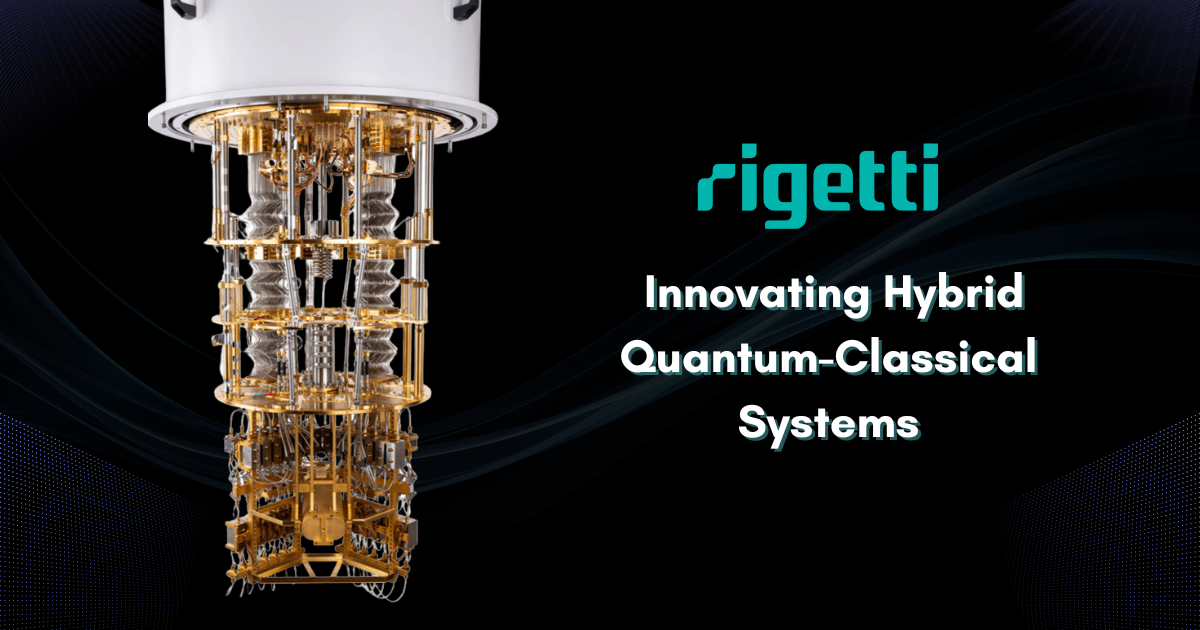
4. Rigetti Computing: Innovating Hybrid Quantum-Classical Systems
Rigetti Computing is a key player in quantum computing, recognized for its focus on hybrid quantum-classical systems that integrate quantum processors with classical computing power for solving complex problems. Founded in 2013, Rigetti has developed a series of Aspen quantum processors, leveraging superconducting qubits designed for speed and scalability. These processors are accessible through its Quantum Cloud Services (QCS), a platform that enables businesses and researchers to run quantum algorithms on-demand.
A distinguishing feature of Rigetti’s approach is its emphasis on practical applications through hybrid systems. By blending quantum and classical resources, the company addresses real-world challenges in optimization, machine learning, and drug discovery. Rigetti also supports developers with its Forest software development kit, providing tools to simulate and execute quantum circuits.
Rigetti continues to innovate with its commitment to improving qubit performance, reducing error rates, and scaling its processors. The company has forged partnerships with government agencies, research institutions, and private enterprises to accelerate quantum adoption. As one of the first quantum computing startups to focus on end-to-end solutions, Rigetti is well-positioned to drive the practical implementation of quantum computing, paving the way for breakthroughs in diverse industries.
Future Plans:
Rigetti aims to enhance the performance of its quantum processors and expand its cloud-based quantum computing services to attract a broader range of users.

5. D-Wave Systems: Pioneers of Quantum Annealing
D-Wave Systems is a leading quantum computing company renowned for its specialized focus on Quantum Annealing, a distinct approach tailored for solving complex optimization problems. Founded in 1999, D-Wave was the first company to commercially deliver quantum computers, with its Advantage Quantum Processor offering over 5,000 qubits—the largest qubit counts available to date.
Unlike gate-based quantum computers, D-Wave’s systems are designed specifically for optimization, machine learning, and sampling applications, making them highly effective in industries like logistics, finance, and manufacturing. Its Leap cloud platform enables users to access quantum resources, integrating quantum and classical computing for hybrid problem-solving. D-Wave has secured partnerships with leading enterprises, such as Volkswagen and Lockheed Martin, to address challenges in route optimization and supply chain management.
D-Wave is also broadening its horizons by exploring gate-based quantum computing to complement its annealing systems. The company’s roadmap focuses on improving qubit connectivity, coherence times, and scaling to larger problems. By targeting specialized use cases and making its technology accessible via the cloud, D-Wave continues to play a pivotal role in advancing quantum computing’s practical applications, offering unique solutions for some of the world’s most pressing computational challenges.
Future Plans:
D-Wave is working to expand the capabilities of quantum annealing while exploring potential transitions into gate-based quantum computing.

6. Honeywell Quantum Solutions (Now Quantinuum): Driving Trapped-Ion Quantum Innovation
Honeywell Quantum Solutions, now operating as Quantinuum, is a leader in quantum computing, specializing in trapped-ion technology. This approach offers exceptional precision and stability, using ions held in electromagnetic traps as qubits. Trapped-ion qubits are known for their high fidelity and long coherence times, essential for reducing error rates in quantum computations.
Quantinuum’s flagship systems, such as the H-Series quantum computers, are designed for scalability and versatility, enabling users to tackle diverse problems in optimization, cryptography, and material science. These systems integrate seamlessly with Quantinuum’s software platforms, including Quantum Origin for cryptographic key generation and InQuanto for quantum chemistry applications.
A hallmark of Quantinuum’s strategy is its focus on hybrid quantum-classical computing. By combining quantum capabilities with traditional processing power, the company addresses practical, real-world challenges. It collaborates with industry leaders and academic institutions to explore advanced quantum algorithms and applications.
Looking ahead, Quantinuum is focused on increasing qubit counts, improving error correction, and advancing toward fault-tolerant quantum computing. With its robust hardware, software ecosystem, and commitment to innovation, Quantinuum is poised to shape the future of quantum technology across multiple industries.
Future Plans:
Quantinuum is scaling up its qubit count and exploring error correction techniques to achieve fault-tolerant quantum computing.

7. Microsoft: Advancing Quantum Computing with a Unique Topological Approach
Microsoft is a major player in quantum computing, leveraging its expertise in software and cloud infrastructure to drive innovation. Its approach is centered on developing topological qubits, which use quasiparticles to encode information. Topological qubits promise greater stability and lower error rates, addressing critical challenges in achieving fault-tolerant quantum computing.
The company’s quantum initiative, Azure Quantum, serves as a comprehensive platform providing access to a diverse set of quantum systems, including Microsoft’s hardware and solutions from partners like IonQ and Quantinuum. Azure Quantum also supports developers with tools like the Q# programming language and the Quantum Development Kit, simplifying the design and execution of quantum algorithms.
Microsoft’s hybrid quantum-classical strategy integrates quantum computing with its Azure cloud infrastructure, enabling scalable problem-solving for industries such as materials science, cryptography, and optimization. Its partnerships with academic institutions and corporations amplify research into practical quantum applications.
While Microsoft’s hardware is still in development, its focus on topological qubits positions it uniquely in the quantum landscape. With a strong emphasis on software, developer accessibility, and cloud integration, Microsoft is driving quantum computing forward, aspiring to unlock transformative solutions for complex global challenges.
Future Plans:
Microsoft plans to commercialize topological qubits while expanding the Azure Quantum ecosystem with new hardware partners.
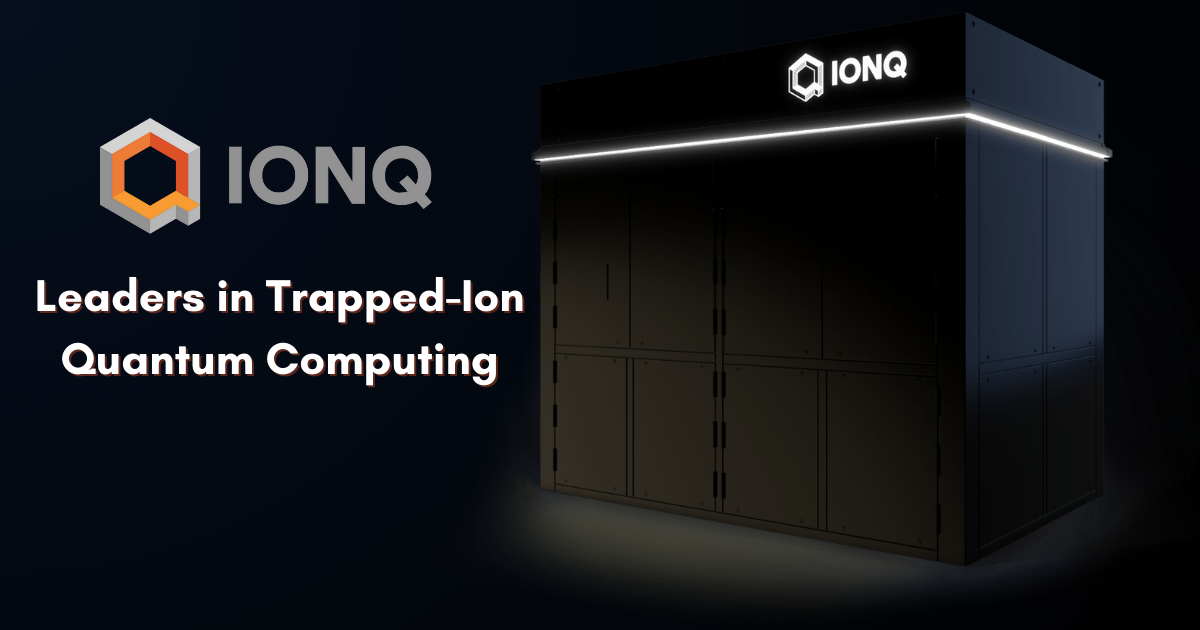
8. IonQ: Leaders in Trapped-Ion Quantum Computing
IonQ is a trailblazer in quantum computing, specializing in trapped-ion technology, a method that uses individual ions as qubits. Known for their precision and long coherence times, trapped-ion qubits provide high-fidelity quantum operations, reducing error rates and ensuring consistent performance. Founded in 2015, IonQ has quickly become a standout player in the quantum landscape, delivering scalable and reliable quantum systems for both research and commercial applications.
IonQ’s quantum processors are accessible through major cloud platforms, including Amazon Braket, Microsoft Azure Quantum, and Google Cloud, enabling seamless integration into existing computational workflows. Its hybrid approach combines quantum and classical systems to tackle challenges in optimization, machine learning, and chemistry, making IonQ’s technology versatile across industries.
IonQ focuses heavily on scalability, with innovations in hardware and software to expand its qubit count and connectivity. Its commitment to building modular systems ensures adaptability for larger quantum architectures in the future. Additionally, IonQ collaborates with leading enterprises and academic institutions to drive quantum adoption in solving real-world problems.
By combining advanced trapped-ion technology with accessible cloud integration, IonQ is at the forefront of making quantum computing a practical and transformative tool for industries worldwide.
Future Plans:
IonQ aims to develop quantum processors with hundreds of qubits and broaden its accessibility through cloud platforms.
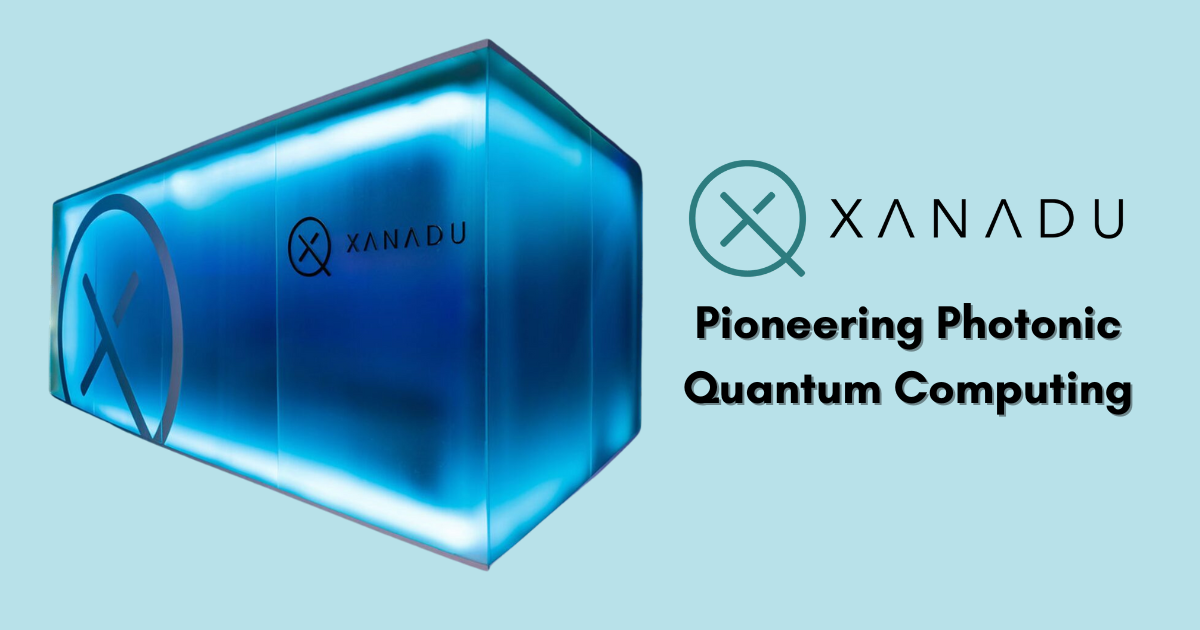
9. Xanadu: Pioneering Photonic Quantum Computing
Xanadu is a cutting-edge quantum computing company specializing in photonic quantum systems, which use light particles (photons) to encode and process quantum information. Founded in 2016 and headquartered in Canada, Xanadu’s innovative approach leverages continuous-variable quantum computing to achieve scalability, high-speed processing, and room-temperature operation—key advantages over other quantum technologies requiring extreme cooling.
The company’s flagship platform, Borealis, is a photonic quantum processor accessible through Xanadu’s cloud services. Borealis has demonstrated remarkable milestones, including outperforming classical supercomputers in solving certain computational problems, a feat akin to quantum supremacy. Xanadu’s technology is particularly well-suited for applications in optimization, machine learning, and secure communication.
Xanadu also offers PennyLane, an open-source library that bridges quantum computing and machine learning, enabling developers to design hybrid algorithms seamlessly. This software integration underscores the company’s commitment to fostering accessibility and innovation in quantum technology.
With its focus on photonic quantum computing, Xanadu is charting a unique course in the quantum industry. Its emphasis on scalability, practical applications, and developer-friendly tools positions the company as a leader in advancing quantum solutions for real-world challenges, driving progress toward a new era of computational capabilities.
Future Plans:
Xanadu is focused on enhancing the scalability and performance of its photonic systems, aiming for quantum advantage in specific applications.
10. AWS Braket: Democratizing Quantum Computing Through the Cloud
AWS Braket, Amazon Web Services’ quantum computing service, is a versatile platform that provides users access to diverse quantum hardware from multiple vendors, including IonQ, Rigetti, and D-Wave, as well as quantum circuit simulators for algorithm testing. Named after the Dirac notation commonly used in quantum mechanics, AWS Braket simplifies quantum exploration by integrating quantum capabilities with the robust AWS cloud ecosystem.
The platform supports gate-based, annealing, and photonic quantum systems, allowing researchers, developers, and enterprises to experiment with various quantum technologies suited to their needs. AWS Braket includes tools for hybrid workflows, enabling users to blend quantum and classical computing for solving complex problems in optimization, machine learning, and material science.
AWS Braket’s integration with AWS services such as S3 for data storage and Amazon SageMaker for machine learning accelerates the development and deployment of quantum solutions. Its user-friendly SDK supports multiple programming languages, making quantum computing more accessible to a broader audience.
By offering flexibility, scalability, and seamless cloud integration, AWS Braket is democratizing quantum computing, empowering organizations to explore its transformative potential and bridging the gap between emerging quantum technologies and real-world applications.
Future Plans:
AWS plans to deepen its partnerships and explore in-house quantum hardware development to strengthen its position in the quantum computing market.
Conclusion
The quantum hardware landscape is dynamic and diverse, with players adopting varied approaches to harness quantum mechanics for computation. From IBM’s superconducting systems to Xanadu’s photonic innovations, each company contributes unique expertise and technology to the field. As quantum computing matures, collaboration and competition among these major players will shape the future of this transformative technology. The race to achieve practical, scalable, and error-tolerant quantum computing is on, and its winners will redefine the limits of computation in the coming decades.


